5. The Witch (Robert Eggers, 2015)
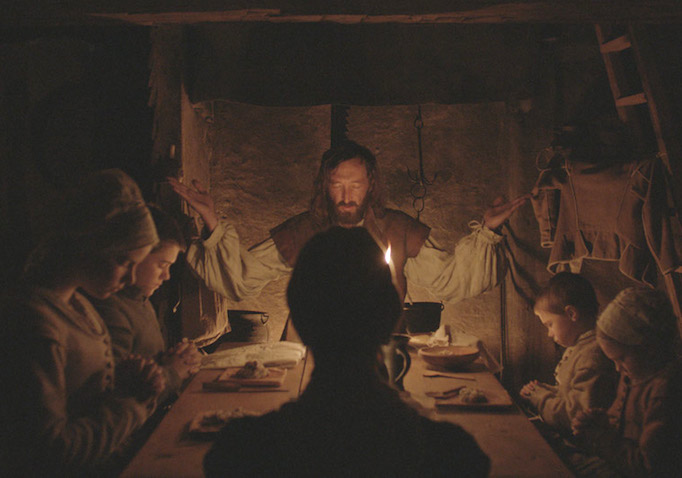
Discredited as a horror by general audiences because of how little it shows, Robert Eggers’ The Witch at its core (and at the very least) is a genre film that seems to completely prove the thesis that less is indeed more. Set in the 1600s, the film focuses on a family unit as it slowly starts to crumble under the pressure of paranoia and fear. This fear, which is bolstered by amazing acting performances from the entire cast (especially the children) give the film a dark, chilling and incredibly haunting atmosphere which is genuinely terrifying at times.
The camera lingers uncomfortably, almost voyeuristically too long in this film and although the script uses period realistic dialogue (which might be a turn off for some) it is completely watertight in its execution. With beautifully twisted cinematography, Eggers uses everything at his disposal to completely unnerve his audience. From the haunting score by Mark Korven to the use of low-key natural lighting, The Witch is built from the ground up with the intention of sucking its audience into its filmic world and trapping them there to witness and become part its period-drama satanic horror.
It’s morbid, gloomy and yes, at times a slow-burner however, the films calculated build to its chaotic third-act conclusion is equal parts unabashedly and intensely brilliant whilst at the same time feeling completely earned. The Witch definitely isn’t one to miss for any horror fan who truly loves movies that draw you into their filmic worlds with a rich amount of themes, beautiful visuals, consistently tense atmosphere and melancholic fervor.
4. Hereditary (Ari Aster, 2018)
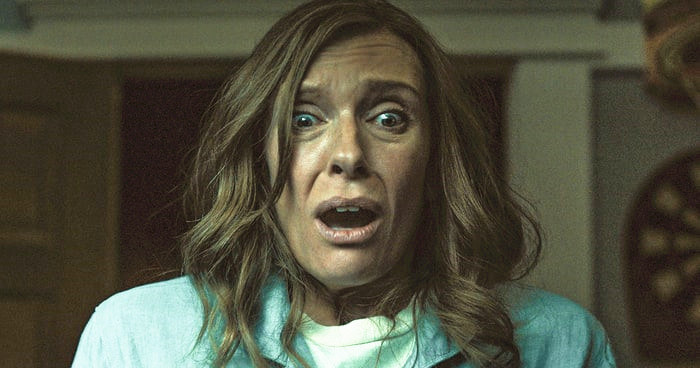
An intense, brutal and emotionally charged deconstruction of the family drama film, Ari Aster’s Hereditary fuses the genre with gut wrenching horror to create a genuinely disturbing piece of cinema. One in which grips you by the throat, demands you pay attention and doesn’t hold up for a second.
Exploring themes not uncommon to the horror genre such as death, loss, acceptance and grief, Hereditary however goes one step too far and does so to voyeuristic and uncomfortable emotional extremes. Designed to feel like you’re deliberately intruding on these characters lives and private moments, Ari Aster drops you into the world of the film with little guidance and just about points you in the right direction to start piecing the strands of narrative explanation he hands you.
Spearheaded by incredible performances, ranging from the feverish with Toni Collette and Alex Wolff to the more subdued, but equally as strong Gabriel Byrne and Milly Shapiro the film take the family drama to new heights. With an enthralling and unpredictable narrative, beautiful camera work and an amazing score by Colin Stetson the film truly feels like a breath of fresh air to the genre.
It’s patient with its scares and unrelenting with its terror. Hereditary, which is almost inherently built with the intention of a re-watch in mind seems meticulously planned out from first frame to last. Packed with detail and intent on making its audience as unnerved as possible, Ari Asters Hereditary is a horror experience that knows when to restrain itself and when to go for it. With an intense ramped-up third act, the film is sure to leave a lasting expression on its audience and if you haven’t watched this by now, make it a priority.
3. The Haunting (Robert Wise, 1963)
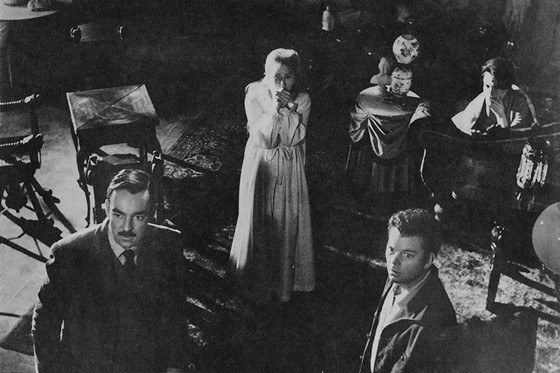
Many of you will probably know about this through the recent Netflix show ‘Haunting of Hill House’, adapted from the same source material. A more faithful depiction of Shirley Jackson’s gothic novel, this film follows the incredibly neurotic Eleanor, played to intense perfection by Julie Harris as she joins a group of people trying to prove the existence of ghosts in the lurid eerie mansion that is Hill House.
Although the films title and synopsis suggests a stereotypical ghost story, the film actually takes on a more psychological approach to its horror, choosing to retain ambiguity over its narrative thrust; the ghosts themselves. That isn’t to say The Haunting isn’t scary. The film famously has one of the most unnerving and eerie atmospheres of all time, even managing to have a long lasting impact on the legendary Martin Scorsese as well as Stephen King himself!
The film by its end ultimately asks the question was the house really haunted or was it all inside of our protagonist, Eleanor’s mind? The ending is intentionally ambiguous and doesn’t definitively answer the question outright leaving the viewers to answer it for themselves. More a film about anxiety and the collapse and breakdown of the human mind than genuine supernatural scares, The Haunting acts as a character piece and asks us to decipher Eleanor and her experiences.
The film spends a large amount of time situating us with Eleanor and drawing us into the same emotional state as hers. It is unsurprising then how The Haunting, in and of itself is troubled by an anxious atmosphere of lingering impending doom and unrelenting terror. Coming highly recommended, the film, which has since become a landmark in horror cinema history is both smart and patient in its narrative pacing and scares. This film genuinely hasn’t aged a day and I advise everyone to check it out.
2. Alien (Ridley Scott, 1979)
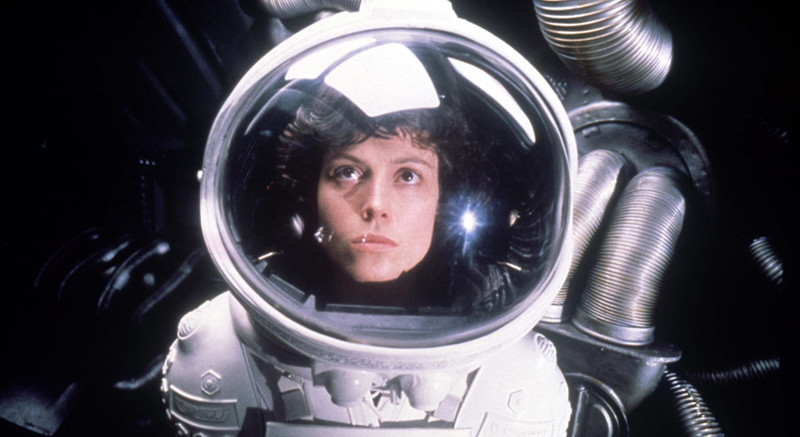
One of the most groundbreaking genre films of all time, there aren’t many people who can say they haven’t at least heard of this classic. The lasting impact of Alien can really not be understated, and it has rightly so, in time become known as one of the best films ever made.
As a tightly shot and edited feature, Ridley Scott leaves much of Alien up to the imagination of the audience, furthermore proving that a little less is indeed a lot more. The way the film creeps under your skin through its pervading, gloomy atmosphere is at times unrivalled within the medium of cinema. Infamously known for its perfect pacing and slow unveiling of its antagonist, the Xenomorph, an abomination of evolution spewed up from the depths Alien is truly a decisive piece of cinema.
Throughout the film, we hardly get to see the creature in its full form, and yet it is absolutely terrifying. When it kills someone, it’s almost scarier having the camera cut away and having our imagination run wild on the how’s and why’s. When this is paired with the beautiful production design work of H. R. Giger and the amazing performances of the absolutely stellar cast, it creates a sci-fi chiller that is as grounded as it is absolutely petrifying.
Needless to say if you haven’t seen this absolute landmark in not only the genres of horror and science fiction, but in cinema itself then do so immediately.
1. Don’t Look Now (Nicolas Roeg, 1973)
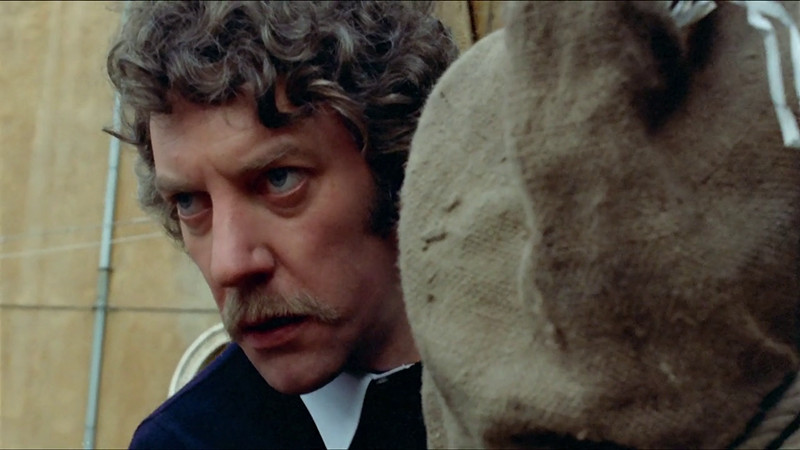
The late, great Nicolas Roeg’s heavily impressionistic take on Daphne du Maurier’s short story is arguably one of the seminal pieces of not only the horror genre, but on cinema in general. The film follows the story of a married couple, John and Laura (played to perfection by Donald Sutherland and Julie Christie, respectively) grieving the recent death of their young daughter.
What sets the film apart from others is that Roeg focuses on creating a story through symbolism and visuals, of which are ambiguously told and deftly utilized through the films tight editing work and stunning cinematography.
The story itself, regardless of this fact is truly engaging and is without a doubt one of the best psychological horrors to date; definitely earning its now legendary status. Set in the mesmerizing streets of Venice, the film utilizes some of the best location shooting ever put to film and through this creates one of the most unrivalled, unnerving and truly eerie atmospheres of its time.
The narrative intertwines the supernatural with brilliant character driven drama, all of which builds up to one of the best emotional climaxes to a film in recent cinematic memory. Roeg refuses to hold the viewers hand at any point, subsequently allowing them to take from the film what they want. Don’t Look Now is a haunting and legitimately beautiful piece of cinema history that at its very core is about the intense and all-consuming nature of grief and is certainly not one to be missed.